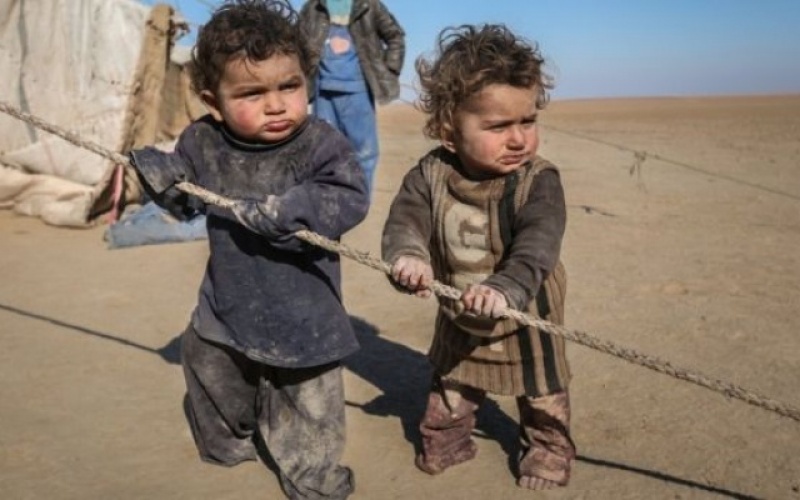Syria’s children “hit rock bottom” in 2016, with more killed than in any other year of the civil war, the United Nations children’s organisation says.
At least 652 children died – 255 of them in or near a school – last year, a 20% jump from the number killed during 2015, Unicef said.
The figure includes only formally-verified deaths, meaning the number could be far higher.
Unicef believes more than 850 children were recruited to fight in 2016.
The number is double that of 2015, the report states. Those recruited increasingly found themselves on the frontline or, in extreme cases, used as executioners, suicide bombers or prison guards.
“The depth of suffering is unprecedented,” said Geert Cappelaere, Unicef regional director for the Middle East and North Africa speaking from Homs, Syria.
“Millions of children in Syria come under attack on a daily basis, their lives turned upside down.”
Six million children are now relying on humanitarian aid due to the civil war, which has been raging for six years this week.
Some 2.3 million of them have fled the country, but the most vulnerable are the 2.8 million trapped in hard-to-reach areas, which includes 280,000 living under siege, the Unicef report said.
Mr Cappelaere added: “Each and every child is scarred for life with horrific consequences on their health, well-being, and future.”
Last week, Save the Children warned millions of Syrian children could be living in a state of “toxic stress”, which the charity feared may become irreversible without immediate help.
It also found two-thirds of children had either lost a loved one, had their house bombed or shelled, or been injured as a result of the war.
Saja’s story
Saja was only seven when the war in Syria started in 2011. Now 13, she has known war for almost half her life, and has moved home five times because of fighting.
Three years after the conflict started, she lost her brother and her four best friends in a bomb attack in Aleppo, and also lost her leg.
Before her injury, she was a keen gymnast. But she says balancing with only one leg is now too difficult – instead, she hopes to continue her dream of being a professional gymnastics coach, and to work in the Olympics.
Source: Unicef

































